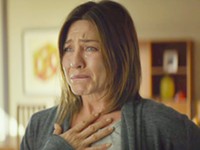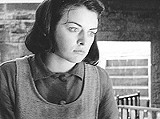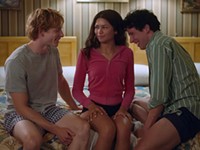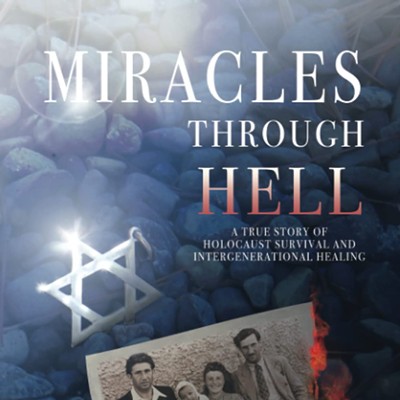[
{
"name": "500x250 Ad",
"insertPoint": "5",
"component": "15667920",
"parentWrapperClass": "",
"requiredCountToDisplay": "1"
}
]
A scene occurring rather late in The Magdalene Sisters shows a group of female inmates of a peculiar Irish Catholic institution known as a Magdalene Asylum, along with the nuns who supervise them, gathered on Christmas Day to watch a movie effusively introduced by the mother superior. The movie of course is The Bells of St. Mary's, probably the greatest nun flick of them all, in which Ingrid Bergman, as a sort of ideal sister, starred opposite Bing Crosby, everybody's favorite Irish priest, and, in the scene in question, delivers an emotional speech on the demands, rewards, and beauty of her vocation.
The moment may transform its heavy irony into something more closely resembling lead, but that otherwise entirely appropriate "quotation" reminds us that The Magdalene Sisters is decidedly not one of those traditional Hollywood nun movies. The contrast between the lovely, loving Bergman and the dour nuns who cruelly oppress the inmates of their asylum underlines both the distressing content and the single-minded obviousness of the picture.
Something of a docudrama, The Magdalene Sisters fictionalizes some of the actual experiences of several generations of women in a history of oppression that ended only as recently as 1996. Although the movie provides little in the way of context or background, it chronicles some horrible practices of a priest-ridden society infused with odd notions of sin and apparently impervious to anything so unusual as health, normality, and innocence. The film's treatment of that irresistible combination of Roman Catholicism and sex should guarantee solid profits in any Protestant country, of course, but its subjects also bear a certain relevance to the ongoing scandals, trumpeted daily in the news media, that currently trouble the Church in America and elsewhere.
The movie concentrates on three young women victimized by a horrible trinity of family, faith, and official authority, a coalition cemented by some twisted mutual belief in the sinfulness of sexuality in any form. All of them suffer punishment for sex, even Margaret (Anne-Marie Duff), raped by a cousin at a wedding, whose family bundles her off to the asylum. Rose (Dorothy Duffy), like many other inmates, bears an illegitimate child, an act that motivates her parents to disown her and put her in the harsh care of the nuns; Bernadette (Nora-Jane Noone) is taken from an orphanage and sent to the asylum because, though entirely innocent, she is mildly flirtatious and simply too pretty for her own good.
As soon as the three major characters enter the asylum, The Magdalene Sisters turns into one of those women's prison movies, in the same genre as Caged, Caged Heat, and Slammer Sluts, though almost entirely devoid of the usual sexual titillation. In a wonderfully formulaic speech, full of the usual plangent clichés about the fires of Hell and the glories of Heaven, the superior tells the women that they will redeem themselves for their terrible sins by working hard at menial tasks, especially in the asylum's laundry, and possibly eventually attain salvation. As usual with such grandiloquent statements, salvation and eternal happiness sound a good deal less attractive than a simple, ordinary life without the dubious benefits of fanatical religiosity.
The film settles into repeated sequences of the daily routine of the inmates --- the awful food (even for Irish cuisine), the exhausting labor, the rigid regimentation, the corporal punishment, the cruelty and hypocrisy of the nuns. Most prison films suggest the universality of the institution, its metaphor for the nation in general, which means that in this case, even in our lifetime, Ireland, amazingly, seems as oppressive and unjust as any theocratic dictatorship anywhere. Like other societies governed or at least powerfully influenced by fundamentalist religion --- most countries where Islam is the main religion, and certain Jewish and Christian communities in the West --- the mere fact of female sexuality appears to inspire some strange combination of fear, hatred, and desire, which often results in strict rules about dress and behavior, sexual segregation, and in extreme cases, such horrors as the actions of the Taliban in Afghanistan of the Magdalene Sisters in Ireland.
Although the writer-director, Peter Mullan, employs a number of purely visual narrative devices, especially in the opening sequences and in a series of lap dissolves that comprehend the daily dreariness of life in the asylum, he also allows the repetitive nature of his subject to overwhelm the progress of his plot. The story necessarily falls into the regular rhythm of the prison flick, but despite its attention to authenticity, never attempts to probe the most important problems of government complicity in this foul business, its obvious illegality, the Church's power to impose what appears to be life sentences on innocent women, and the sheep-like acquiescence of the populace, a behavior apparently not restricted to our citizenry. At the same time, like any good socially committed picture, The Magdalene Sisters generates shock and outrage, along with astonishment that the practices and conditions it depicts could occur in a civilized country in our time.
The Magdalene Sisters, starring Geraldine McEwan, Anne-Marie Duff, Nora-Jane Noone, Dorothy Duffy, Eileen Walsh, Mary Murray, Britta Smith, Eithne McGuinness, Phyllis McMahon, Rebecca Walsh, Donal Costello, Eamon Owens, Sean Colgan; written and directed by Peter Mullan. The Little; Pittsford Plaza Cinema.
You can hear George and his movie reviews on WXXI-FM 91.5 Fridays at 7:20 a.m., rerun on Saturdays at 8:50 a.m.
Latest in Movie Reviews
More by George Grella
-

Film Review: "Cake"
Jan 26, 2015 -

Film Review: "American Sniper"
Jan 19, 2015 -

Film Review: "Inherent Vice"
Jan 12, 2015 - More »






